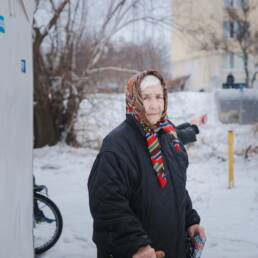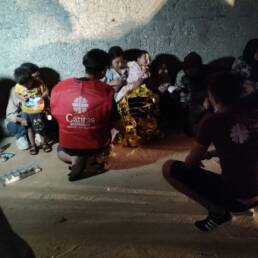We must travel this road together, united in minds and hearts.
This paper explores the different ways migration and development are linked, both in terms of observable links between the two phenomena and in terms of interactions between migration and development policies. We reflect on how a negative interaction between policies in the two fields can be avoided, how policies in migration and development can contribute to integral human development and how migration can be an instrument for development.
For Caritas, respect for human rights and safety along the migration “journey” is a key concern. A human centred and ethical approach is fundamental to every policy. Thus, an ethical interpretation and application of key concepts used in the context of migration and development, including brain drain, remittances, and circular migration is essential. When speaking of development or integral human development, Caritas refers primarily to development of the individual person. Nevertheless, the positive impact of development at an individual level on a community also allows us to refer throughout the paper to development in a broader context, i.e. the community or country.
This paper begins with a discussion of the phenomena of migration and development. By providing facts and figures, development issues which have an impact on migration are examined, followed by a section exploring aspects of migration which have an impact on development. Secondly, approaches to development and migration policies will be examined. The last section provides Caritas policy recommendations for policy-makers and some recommendations for Caritas Member Organisations in their operational work in the areas of migration and development.
Growing human mobility in the context of globalisation
Globalisation has been accompanied by a new era of mobility. Migration is increasingly being analysed as a development tool. Although large scale migration out of necessity can be primarily seen as a failure of development, the phenomenon can also contribute to some levels of subsequent global development.
For Caritas, migration is the movement of people either across an international border, or within a state. It is a population movement, encompassing any kind of movement of people, whatever its length, composition and causes; it includes migration of refugees, displaced persons, uprooted people and economic migrants.
In 2005, international migrants represented 3%4 of the world population and migration constitutes an important feature of the population in many countries. International migration is a historically important process, which forms an indissoluble part of human evolution. In the past, in response to changes in economic, social and political circumstances, it has aided in the expansion of trade and economy, helped to create new nations and territories, fostered urbanisation, opened up new spaces for production, and made decisive contributions to social and cultural change. In the second half of the nineteenth century and the first decades of the twentieth century, the world witnessed a type of migration fundamentally consisting of two opposite flows: the voluntary migration of Europeans, which played a key role in the economic growth of some regions of the Old and New World, and another flow involving the (often forced) migration of workers of varying origins, which resulted in enhancing the inequality of the international order.
More information
Leïla Bodeux
Senior Policy and Advocacy Officer
Tel: +32 (0)2 235 26 55
Mob: +32 (0)478 585 409
lbodeux@caritas.eu




